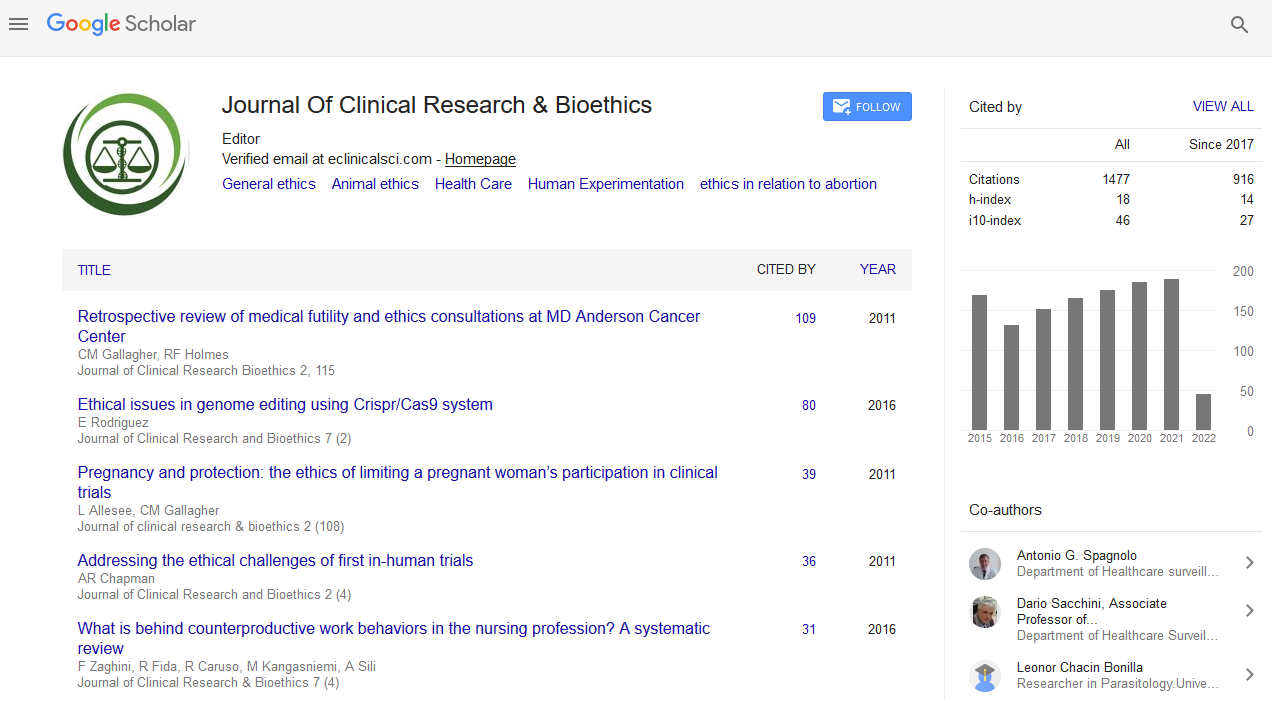PMC/PubMed Indexed Articles
Indexed In
- Open J Gate
- Genamics JournalSeek
- JournalTOCs
- RefSeek
- Hamdard University
- EBSCO A-Z
- OCLC- WorldCat
- Publons
- Geneva Foundation for Medical Education and Research
- Google Scholar
Useful Links
Share This Page
Journal Flyer

Open Access Journals
- Agri and Aquaculture
- Biochemistry
- Bioinformatics & Systems Biology
- Business & Management
- Chemistry
- Clinical Sciences
- Engineering
- Food & Nutrition
- General Science
- Genetics & Molecular Biology
- Immunology & Microbiology
- Medical Sciences
- Neuroscience & Psychology
- Nursing & Health Care
- Pharmaceutical Sciences
Abstract
Pregnancy and Protection: The Ethics of Limiting a Pregnant Woman's Participation in Clinical Trials
Lori Allesee and Colleen M. Gallagher
The call for the inclusion of pregnant women in clinical trials has received renewed attention recently. This interest springs from articles in various medical journals highlighting the gaps in medical knowledge and the need to improve health care for pregnant women It is not a simple decision whether to include pregnant women in studies or not. The general thought is that it's too dangerous for the baby if a pregnant woman is participating in a trial, and the absence of research on how medications work in pregnant women leave doctors guessing about how to safely and effectively treat patients through pregnancy Excluding pregnant women from clinical trials are not automatic, not unethical nor is it arbitrarily determined. The regulatory framework is based on sound ethical and legal reasoning that demonstrates when inclusion in a clinical trial is appropriate or when clear and compelling reasons for exclusion are presented. Learning objective: Readers will learn about limitations of research, history of the inclusion and exclusion of pregnant women in clinical trials, reticence for inclusions, as well as regulations designed using reasoned legal and ethical principles, such as: Principle of Autonomy, Informed Consent, and Beneficence and Nonmaleficence.


